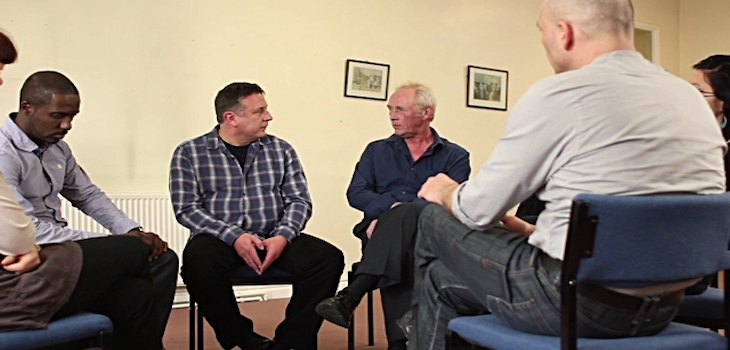“The quality of our relationships determines the quality of our lives,” says Esther Perel, relationship psychotherapist, author, podcaster and teacher.
Said succinctly, Perel highlights the interpersonal and connective nature of the human experience. Research has frequently documented that for those who experience meaningful relationships, there are fewer issues of mental and physical health and overall enhanced quality of life.
In a 2017 blog post, 5 Reasons to Consider Group Therapy, I provided five solid reasons why group therapy is an effective therapeutic modality. If that didn’t sway you, here are five more.
1. That which originates within an interpersonal setting should be repaired within an interpersonal setting. While there are multiple factors at work in group psychotherapy, the primary one is attachment. Various styles and ways of being show up in the group room and as such there is an opportunity for a corrective emotional experience and a space for connection within the group confines, which, theoretically should generalize to one’s larger web of relationships. Natalie’s recognition of her own passivity allowed her to finally and deliberately challenge her husband’s honesty around fidelity that led to significant changes in their marriage.
2. Group provides a medium in which to see and be seen. It offers a space of feeling known. It is not individual therapy. The microcosm that is group re-creates the multiple families in which we live our life. Positive attachment styles can be learned through the re-creation of our family of origin relationships and systems. In group, Doug didn’t want to be seen; he hid behind his mask of hostility and anger, unaware that he was alienating others. Although he left with little apparent change, he noted the experience as life-changing in how he sees others.
3. Groupwork utilizes neural functions that support attachment and emotional regulation. Utilizing and working with right brain processes within the group setting, there is a place for affect regulation; that is, the ability to experience and regulate one’s internal state within a theoretic framework. The work of Allen Schore, Ph.D., keynote speaker at the 2019 AGPA annual conference, (Affect Regulation and the Origin of the Self, Affect Dysregulation and Disorders of the Self), Phillip Flores, Ph.D. (Addiction as an Attachment Disorder) and Steven Porges, Ph.D. provide support for this notion. Through access to our right brain, we can “try on new outfits” and learn new strategies with which to regulate our inner pain. Bringing Liz down from her chronic anger and attacks in group revealed an underlying pain, sense of inadequacy and insecurity that she learned finally how to reveal to others.
4. Group Therapy is all about crosstalk. Unlike the 12-step based programs where most groups do not permit ‘crosstalk’, that is, where a member talks to or provides feedback to another member who has shared, group therapy is all about crosstalk. As a modality completely different from support work, it offers a remarkably antithetical experience. In fact, conflict is often a catalyst to transformation, a process unavailable in the 12-step support system. Essentially, group extends well beyond the process of support, offering a chance for self-awareness via unintentionally showing ourselves to others. Mark had a long history of attendance at Alcoholics Anonymous (AA ) and Sex-Addicts Anonymous (SAA), often sitting in the last row and taking in from others, which proved a supportive experience. Yet through sharing his experience with others who provided a mirror in which to see himself, he felt stronger and with greater self-esteem.
5. Group Therapy Allows for personal transformation and relational repair. Working within a group frame helps us learn how others see us, which may be very discrepant form how we ourselves. It is through this process that we can go inside and see ourselves through the lenses of others and find that which we were previously blind to. Simple recognition can be transformative. When Bentley cornered Samantha to see how she presents herself to others, as crazy, a light bulb went off; Samantha reported that it was simple recognition that was transformative and began the healing process.
Group therapy is a wonderful adjunct to one’s individual and/or couples therapies.
But it is not for everybody. If you have significant challenges in the presence of others then it may not be for you; a sole prescription of individual therapy may be indicated.






